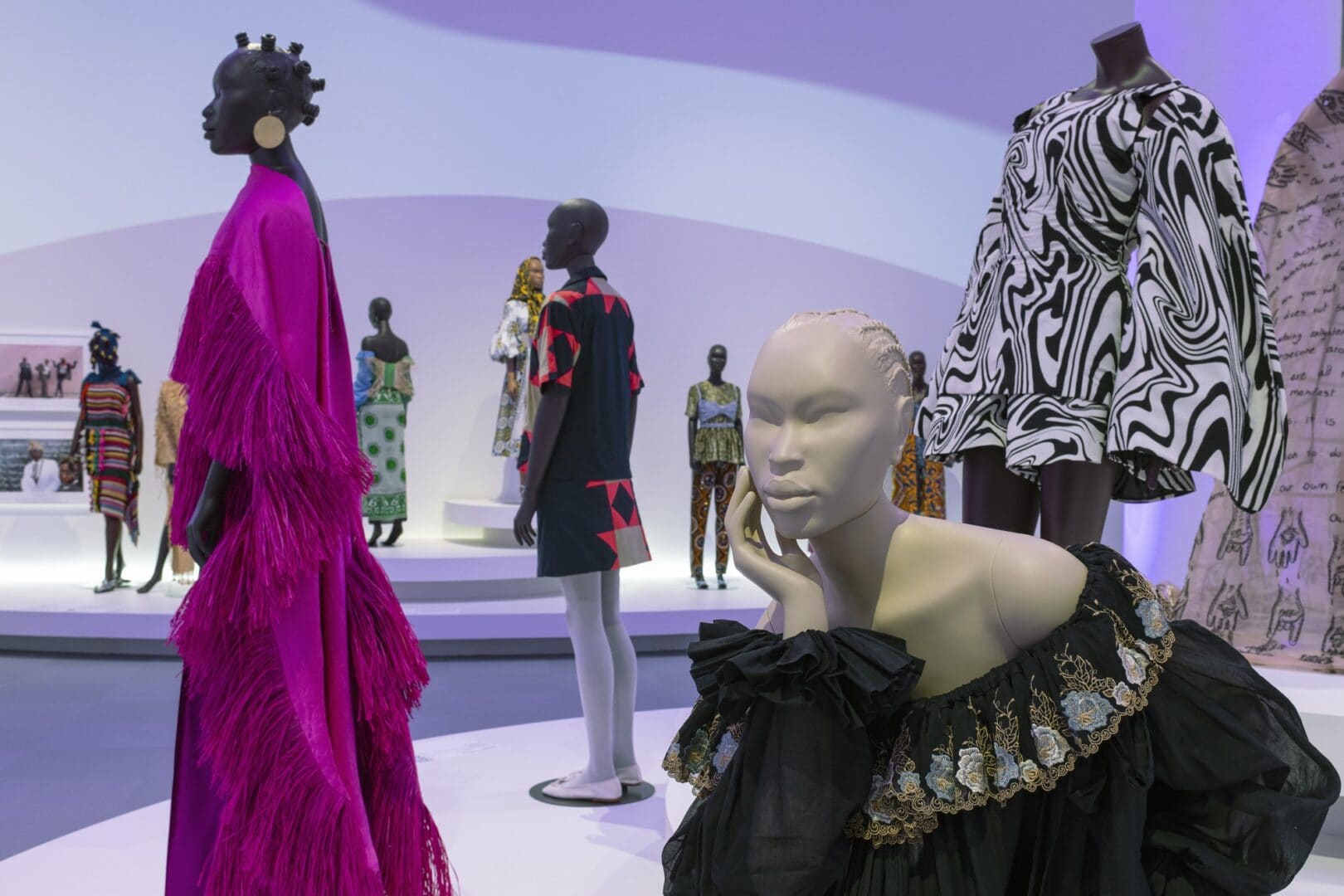
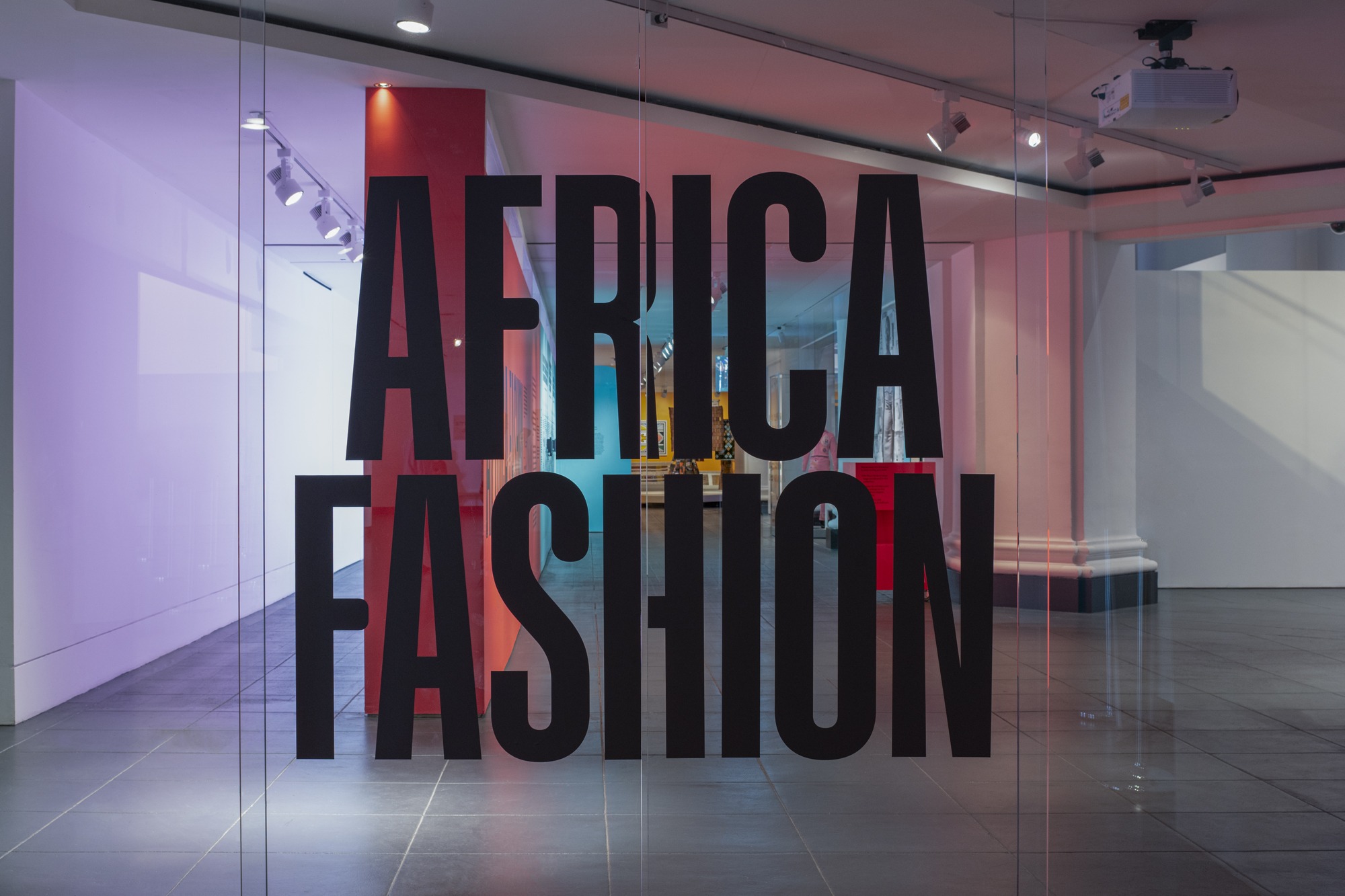
I walked through the doors of the Brooklyn Museum feeling the weight of the world amid current events in Israel and Palestine. Reflecting on the state of our divided global society. Pleas for freedom in my heart and mind. And once again, grappling with the complex emotions that come with being a Black American woman from the South who is a descendant of enslaved people and sharecroppers covering fashion and style from Africa. A Black American woman from a working-class family. A Black American woman with the privilege of having an education from one of the best research institutions in the United States. A Black American woman who is acutely aware of her existence in a racialized world and colonized body. A Black American woman who, like writer and academic Saidiya Hartman, is stuck between two worlds, both of which I am a stranger.
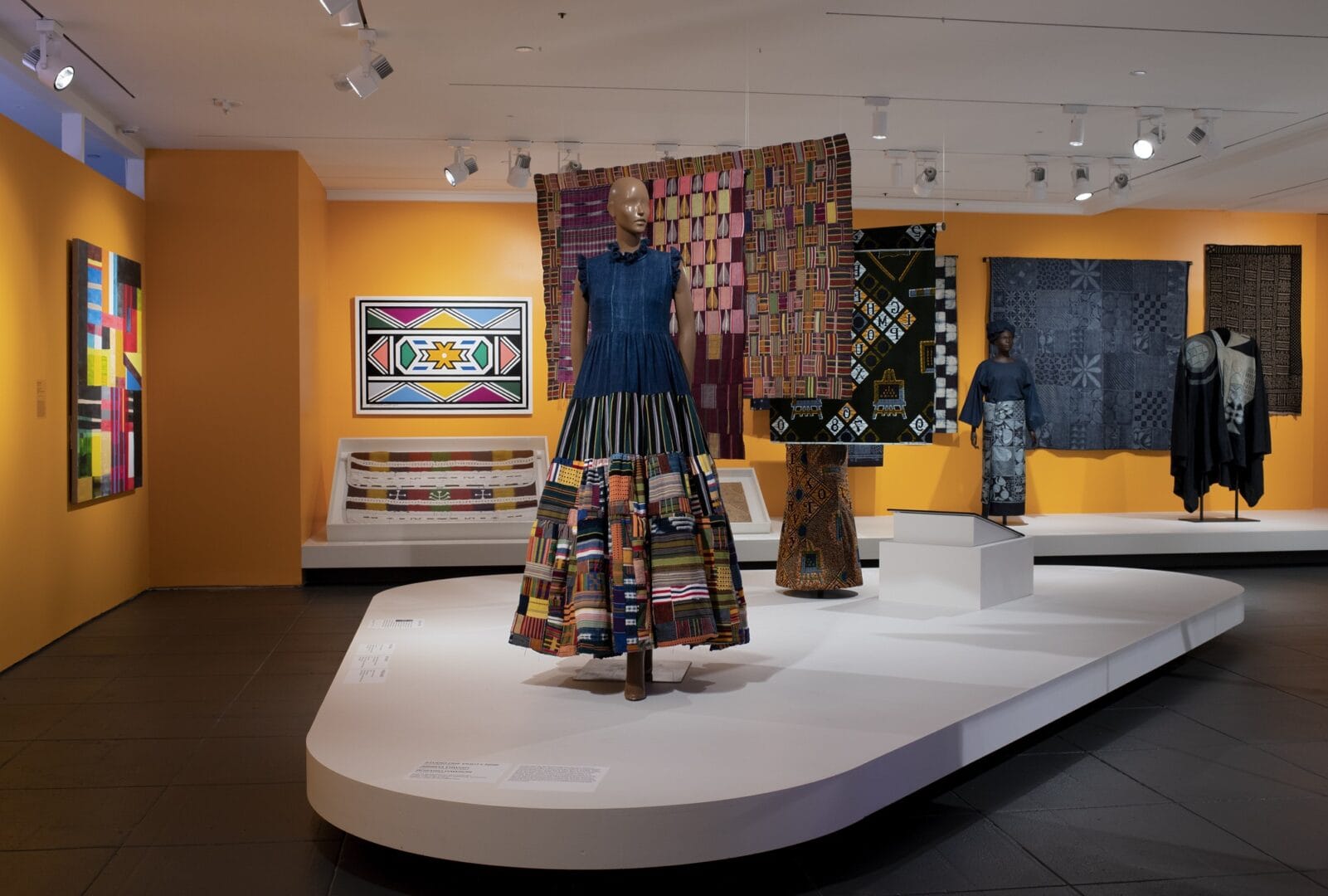
I entered the Africa Fashion exhibition with Amiri Baraka’s “Why is We Americans” blasting in my ear, well aware of my positionality, my estrangement from the continent, and uncertain what I’d find beyond the sliding glass doors of the show. Despite my reservations, I moved through my ambivalence only to be met with great beauty, joy, and pride to be part of a diaspora that continues to exhibit creative genius in all corners of the globe
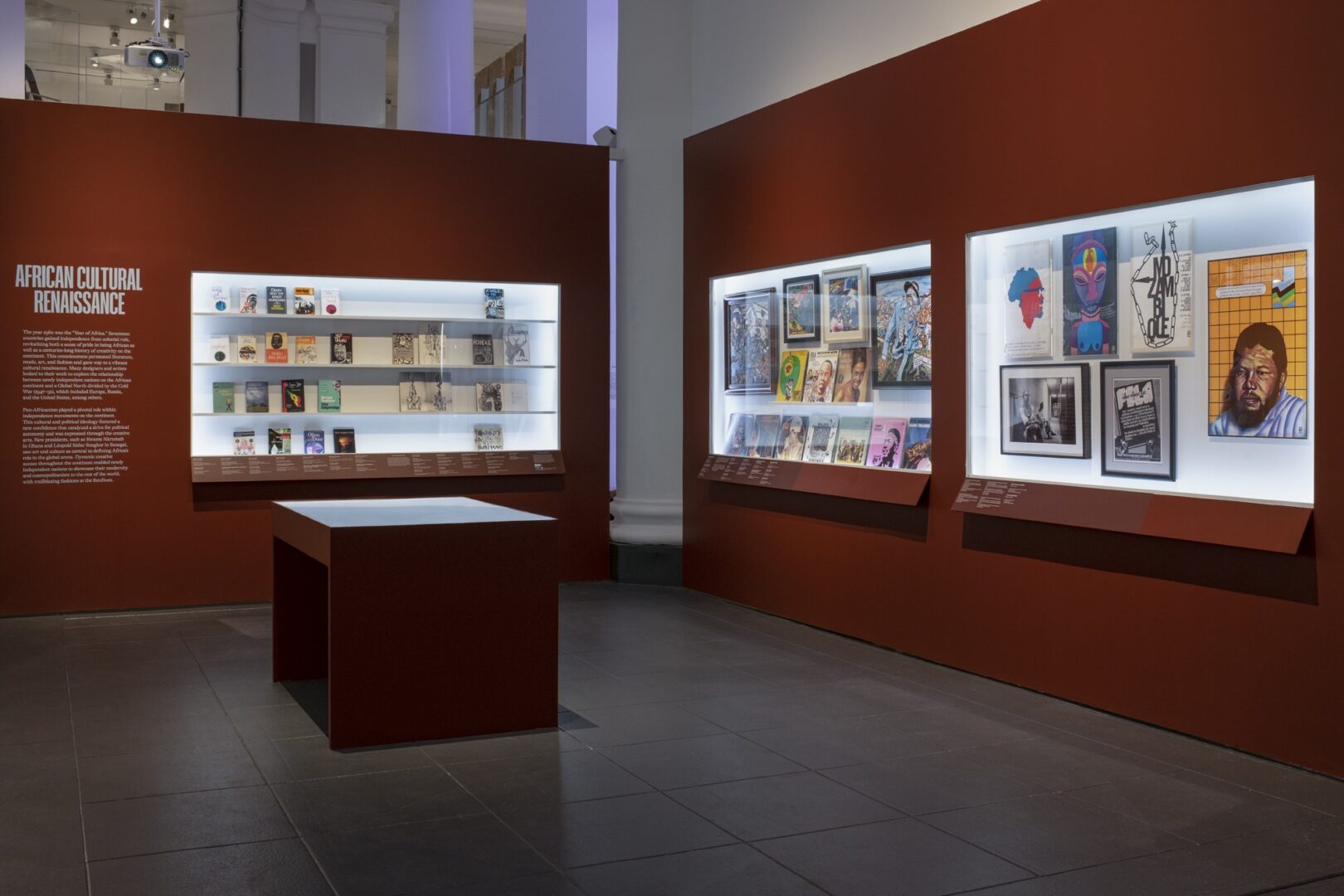
The curators, Ernestine White-Mifetu and Annissa Malvoisin, first grounded us in the past – one of coloniality. The objective truth: Africa had been ruled by foreign imperialist control such as the United Kingdom, France, Germany, Belgium, Spain, Portugal, and Italy. I was then led, chronologically, through a timeline of independence from Liberia to South Sudan – a centuries long journey to emancipation from colonialism. And then there was a quote from 1965 by Kwame Nkrumah, the first Prime Minister and President of Ghana. The quote, which demanded my attention stated, “We believe in the rights of all people to govern themselves. We affirm the right of all colonial people to determine their own destiny. All colonies must be free from foreign imperialist control, whether political or economic.”
This quote stuck with me as its relevance reigns true 58 years later. This quote would go on to shape my perceptions of what I was about to experience. This quote set the tone for the Africa Fashion exhibit, a visual story which included cloth, objects, film, sound, and text illuminating the creative force and cultural renaissance that followed Africa’s independence from European colonial rule. The potentialities of freedom through cloth and fashion – how refreshing and so Tatter.
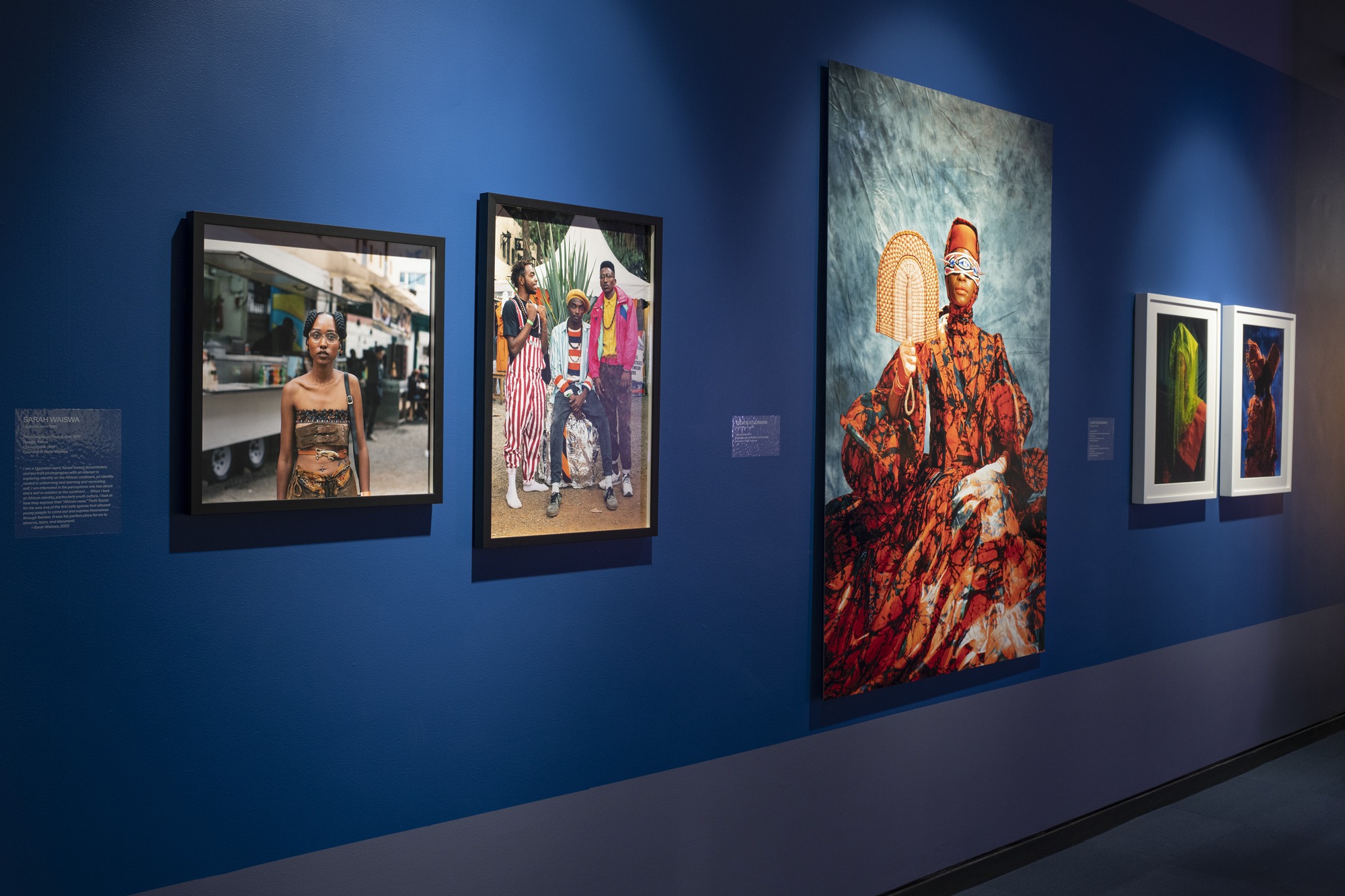
From gatherings like the First World Festival of Black Arts (1966) that marked a cultural renaissance to the commemorative cloths that speak to the politics and poetics of textiles in Africa to the image makers who are capturing the performance of identity, the show shed light on movements, traditions, and styles that encompass the continents diverse cultures and expressions. As I maneuvered through the presentation I was reminded of the philosophy of Sankofa, in which the past serves as a guide to the future. Each room layered rich histories of colonial political critique and spoke to the cultural significance of textiles and fashion’s fundamental place in the decolonization of the mind. I was reminded of El Anatsui, a Ghanaian sculptor who once said, “Textiles are to the African what monuments are to westerners.” I smiled and thought to myself, “Cloth – a guide, a messenger, propaganda, a mobile commodity, a symbol of independence, a political object.”
As I made my way to the exit through a room full of mannequins dressed in contemporary African fashions where the handmade, handwoven, and embroidered took centerstage, I was blanketed with questions following my new understandings of the continent’s independence, unity, creativity and its modern-day implications here in the United States and abroad.
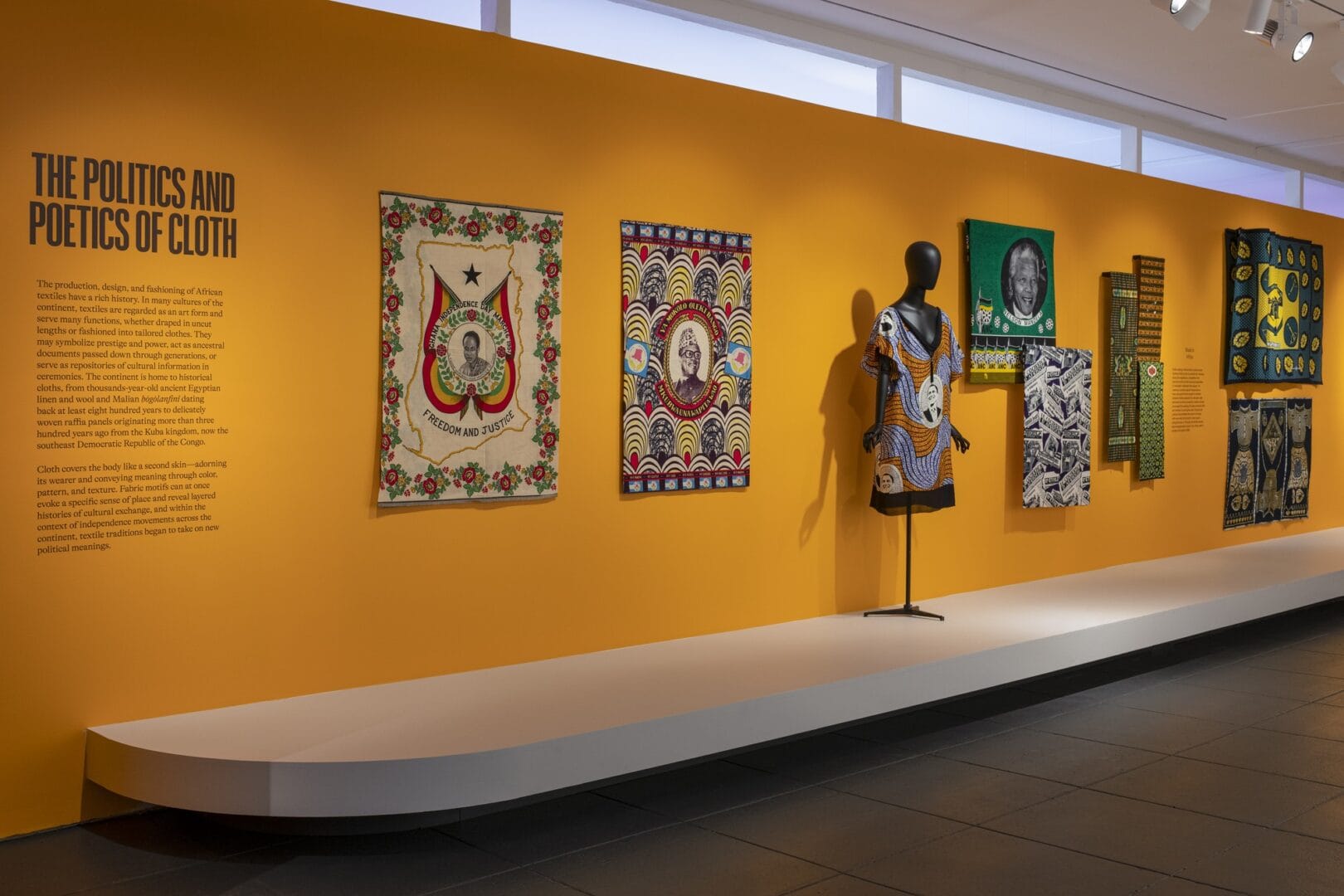
I couldn’t help but wonder: What comes forth when we can breathe and be? What arises when we are free to roam? What is possible when land is returned? What happens when one can define their own subjective truth? What can the world be when the past guides our future? What happens when we recognize and celebrate our interconnection and interdependence?
I don’t personally have the answers, but for me, the Africa Fashion exhibit boldly offered insight and new pathways to think about the possibilities of freedom, autonomy, and liberation through cloth, self-expression, and the objects with which we adorn ourselves.
The Africa Fashion exhibit ran through October 22, 2023 at the Brooklyn Museum. The multisensory experience celebrated the global impact of African fashions from the 1950s to today.
Images courtesy of Danny Perez, Installation view, Africa Fashion. Brooklyn Museum, June 23 – October 22, 2023
